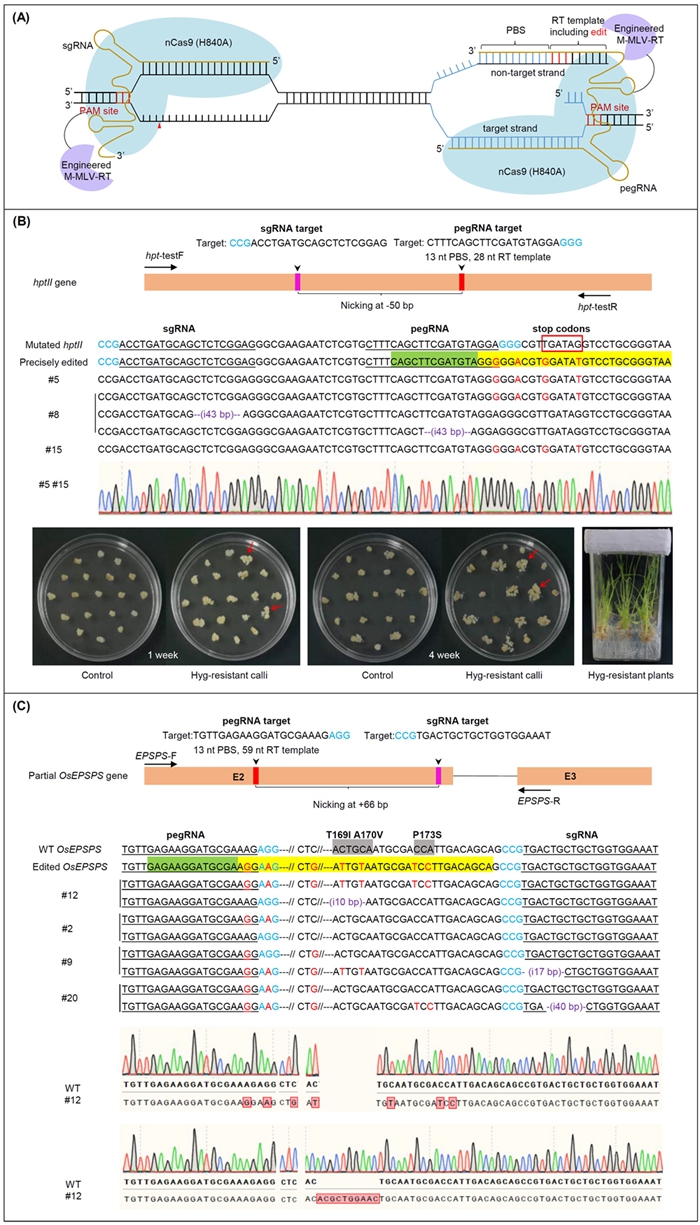Precise Modifications of Both Exogenous and Endogenous Genes in Rice by Prime Editing
作者:Huiyuan Li, Jingying Li, Jilin Chen, Lei Yan, Lanqin Xia
影响因子:10.812
刊物名称:Molecular Plant
出版年份:4 May 2020
https://doi.org/10.1016/j.molp.2020.03.011.
Abstract
Harnessing genetic diversity and the introduction of elite alleles from wild relatives or landraces into commercial cultivars has been a major goal in crop breeding programs. Precise modification of the plant genome through clustered regularly interspaced short palindromic repeat (CRISPR)/CRISPR-associated protein (Cas) (CRISPR/Cas)-mediated homology-directed repair (HDR) offers a great promise to introduce elite alleles from wild relatives or landraces into commercialized cultivars in the short term. Various strategies have been attempted for precise targeted gene/allele replacement or gene insertion and tagging through CRISPR/Cas systems in plants (Baltes et al., 2014, Gil-Humanes et al., 2016, Sun et al., 2016, Wang et al., 2017, Li et al., 2019, Miki et al., 2018, Hua et al., 2019; Wolter and Puchta, 2019, Dong et al., 2020). However, due to the intrinsic lower frequency of HDR in plant cells, insufficient availability of a donor repair template, and the non-homologous end-joining (NHEJ) is the predominant DNA repair pathway in plants (Baltes et al., 2014, Li et al., 2019), it remains challenging, especially in crop plants. Thus, it is essential to further exploit more efficient precision genome-editing technology in order to accelerate crop improvement.

